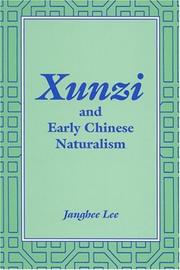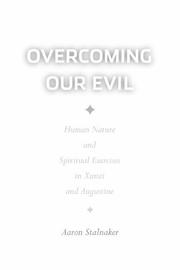| Listing 1 - 8 of 8 |
Sort by
|
Book
ISBN: 9787309146097 7309146093 Year: 2019 Publisher: 上海 复旦大学出版社
Abstract | Keywords | Export | Availability | Bookmark
 Loading...
Loading...Choose an application
- Reference Manager
- EndNote
- RefWorks (Direct export to RefWorks)
本书是2018年7月在复旦大学哲学学院举办的'荀子与儒家思想--以政治哲学为中心'学术研讨会会议论文的结集, 共收录23篇文章.诸文围绕着'荀子与儒家思想--以政治哲学为中心'而展开, 涉及荀子的政治哲学, 荀子的道德哲学, '荀子'的文本诠释等.这些论述与探讨, 既有精深的理论阐发, 也有细致的文本解读, 颇具创发性和启示性.本论文集的出版, 将对今后国内外荀学研究的深入开展起到一定的推动作用.

ISBN: 9004129650 9004420320 Year: 2003 Publisher: Leiden Brill
Abstract | Keywords | Export | Availability | Bookmark
 Loading...
Loading...Choose an application
- Reference Manager
- EndNote
- RefWorks (Direct export to RefWorks)
S12/0410 --- S12/0216 --- Political science --- -Administration --- Civil government --- Commonwealth, The --- Government --- Political theory --- Political thought --- Politics --- Science, Political --- Social sciences --- State, The --- China: Philosophy and Classics--Xunzi --- China: Philosophy and Classics--Political philosophy --- Philosophy --- Xunzi --- Hsün-tzu --- 恂子 --- 荀子 --- Philosophy. --- -China: Philosophy and Classics--Xunzi --- Siun Tseu --- Suen-Tse --- Administration --- Xunzi, --- Hsün-tzu,

ISBN: 0791461971 Year: 2004 Publisher: Albany State university of New York press
Abstract | Keywords | Export | Availability | Bookmark
 Loading...
Loading...Choose an application
- Reference Manager
- EndNote
- RefWorks (Direct export to RefWorks)
S12/0410 --- China: Philosophy and Classics--Xunzi --- Confucian ethics. --- Confucian ethics --- Religious ethics --- Xunzi, --- Hsün, Chʻing, --- Hsün, Kʻuang, --- Hsün-tze, --- Hsün-tzu, --- Hsüntze, --- Junshi, --- Si︠u︡nʹ-t︠s︡zy, --- Sunja, --- Tuân tử, --- Xun, Kuang, --- Xun, Qing, --- 筍子, --- 荀子, --- 荀况, --- 苟子, --- Ethics.
Book
ISBN: 143846150X 9781438461502 9781438461496 1438461496 Year: 2016 Publisher: Albany
Abstract | Keywords | Export | Availability | Bookmark
 Loading...
Loading...Choose an application
- Reference Manager
- EndNote
- RefWorks (Direct export to RefWorks)
Self-Realization through Confucian Learning reconstructs Confucian thinker Xunzi's moral philosophy in response to the modern focus on self-realization. Xunzi (born around 310 BCE) claims that human xing ("nature" or "native conditions") is without an ethical framework and has a tendency to dominate, leading to bad judgments and bad behavior. Confucian ritual propriety (li) is needed to transform these human native conditions. Through li, people become self-directing: in control of feelings and desires and in command of their own lives. Siufu Tang explicates Xunzi's understanding of the hierarchical structure of human agency to articulate why and how li is essential to self-realization. Ritual propriety also structures relationships to make a harmonious communal life possible. Tang's focus on self-realization highlights how Confucianism can address the individual as well as the communal and serve as a philosophy for contemporary times.
Confucian ethics. --- Philosophy, Chinese --- Philosophy, Confucian --- Religious ethics --- Xunzi, --- Hsün, Chʻing, --- Hsün, Kʻuang, --- Hsün-tze, --- Hsün-tzu, --- Hsüntze, --- Junshi, --- Si︠u︡nʹ-t︠s︡zy, --- Sunja, --- Tuân tử, --- Xun, Kuang, --- Xun, Qing, --- 荀子, --- 荀况, --- S12/0214 --- S12/0410 --- China: Philosophy and Classics--Philosophy of nature --- China: Philosophy and Classics--Xunzi
Book
ISBN: 9781108499422 1108499422 1108612539 1108645089 9781108645089 1108577393 Year: 2020 Publisher: Cambridge : Cambridge University Press,
Abstract | Keywords | Export | Availability | Bookmark
 Loading...
Loading...Choose an application
- Reference Manager
- EndNote
- RefWorks (Direct export to RefWorks)
Surprisingly little is known about what ancient Confucian thinkers struggled with in their own social and political contexts and how these struggles contributed to the establishment and further development of classical Confucian political theory. Leading scholar of comparative political theory, Sungmoon Kim offers a systematic philosophical account of the political theories of Mencius and Xunzi, investigating both their agreements and disagreements as the champions of the Confucian Way against the backdrop of the prevailing realpolitik of the late Warring States period. Together, they contributed to the formation of Confucian virtue politics, in which concerns about political order and stability and concerns about moral character and moral enhancement are deeply intertwined. By presenting their political philosophies in terms of constitutionalism, Kim shows how they each developed the ability to authorize the ruler's legitimate use of power in domestic and interstate politics in ways consistent with their distinctive accounts of human nature.
General ethics --- Xunzi --- Confucius --- Meng Tse --- Philosophy, Chinese --- Philosophy, Chinese. --- Philosophy, Confucian. --- Political ethics. --- Political science --- Philosophy. --- Mencius. --- Xunzi, --- To 221 B.C. --- Philosophy. --- Philosophy, Confucian --- Political ethics --- Ethics, Political --- Ethics in government --- Government ethics --- Politics, Practical --- Ethics --- Civics --- Political philosophy --- Confucian philosophy --- Confucianism --- Philosophy --- Moral and ethical aspects --- Hsün, Chʻing, --- Hsün, Kʻuang, --- Hsün-tze, --- Hsün-tzu, --- Hsüntze, --- Junshi, --- Si︠u︡nʹ-t︠s︡zy, --- Sunja, --- Tuân tử, --- Xun, Kuang, --- Xun, Qing, --- 荀子, --- 荀况, --- Mencius
Book
ISSN: 22110275 ISBN: 9789401777452 9401777454 9401777438 9789402413984 9789401777438 9402413987 Year: 2016 Volume: 7 Publisher: Dordrecht : Springer,
Abstract | Keywords | Export | Availability | Bookmark
 Loading...
Loading...Choose an application
- Reference Manager
- EndNote
- RefWorks (Direct export to RefWorks)
This volume presents a comprehensive analysis of the Confucian thinker Xunzi and his work, which shares the same name. It features a variety of disciplinary perspectives and offers divergent interpretations. The disagreements reveal that, as with any other classic, the Xunzi provides fertile ground for readers. It is a source from which they have drawn—and will continue to draw—different lessons. In more than 15 essays, the contributors examine Xunzi’s views on topics such as human nature, ritual, music, ethics, and politics. They also look at his relations with other thinkers in early China and consider his influence in East Asian intellectual history. A number of important Chinese scholars in the Song dynasty (960–1279 CE) sought to censor the Xunzi. They thought that it offered a heretical and impure version of Confuciansim. As a result, they directed study away from the Xunzi. This has diminished the popularity of the work. However, the essays presented here help to change this situation. They open the text’s riches to Western students and scholars. The book also highlights the substantial impact the Xunzi has had on thinkers throughout history, even on those who were critical of it. Overall, readers will gain new insights and a deeper understanding of this important, but often neglected, thinker.
culturele antropologie --- Ethnology. Cultural anthropology --- Sociology of culture --- Didactics of religion --- cultuur --- Didactics of the arts --- theologie --- Serratia liquefaciens --- godsdienst --- Religious studies --- Philosophy, Chinese --- Xunzi, --- Hsün, Chʻing, --- Hsün, Kʻuang, --- Hsün-tze, --- Hsün-tzu, --- Hsüntze, --- Junshi, --- Si︠u︡nʹ-t︠s︡zy, --- Sunja, --- Tuân tử, --- Xun, Kuang, --- Xun, Qing, --- 筍子, --- 荀子, --- 荀况, --- 苟子, --- Religion. --- Culture-Study and teaching. --- Religious Studies, general. --- Regional and Cultural Studies. --- Religion, Primitive --- Atheism --- God --- Irreligion --- Religions --- Theology --- Culture—Study and teaching. --- Culture --- Philosophy, Confucian --- Religion --- Study and teaching --- Cultural studies --- Study and teaching. --- Culture - Study and teaching --- Xunzi, - 313? - 238? av. J.C. --- Philosophy, Confucian.

ISBN: 1589013840 1435627482 9781435627482 1589010949 9781589010949 9781589013841 Year: 2006 Publisher: Washington, D.C. : Georgetown University Press,
Abstract | Keywords | Export | Availability | Bookmark
 Loading...
Loading...Choose an application
- Reference Manager
- EndNote
- RefWorks (Direct export to RefWorks)
Can people ever really change? Do they ever become more ethical, and if so, how? Overcoming Our Evil focuses on the way ethical and religious commitments are conceived and nurtured through the methodical practices that Pierre Hadot has called ""spiritual exercises."" These practices engage thought, imagination, and sensibility, and have a significant ethical component, yet aim for a broader transformation of the whole personality. Going beyond recent philosophical and historical work that has focused on ancient Greco-Roman philosophy, Stalnaker broadens ethical inquiry into spiritual exercises
Ethics. --- Conduct of life. --- Good and evil. --- Ethics, Practical --- Morals --- Personal conduct --- Ethics --- Philosophical counseling --- Evil --- Wickedness --- Philosophy --- Polarity --- Religious thought --- Deontology --- Ethics, Primitive --- Ethology --- Moral philosophy --- Morality --- Philosophy, Moral --- Science, Moral --- Values --- Xunzi, --- Augustine, --- Hsün, Chʻing, --- Hsün, Kʻuang, --- Hsün-tze, --- Hsün-tzu, --- Hsüntze, --- Junshi, --- Si︠u︡nʹ-t︠s︡zy, --- Sunja, --- Tuân tử, --- Xun, Kuang, --- Xun, Qing, --- 荀子, --- 荀况, --- Avgustin, --- Augustinus, Aurelius, --- Augustyn, --- Augustin, --- Ughasṭīnūs, --- Agostino, --- Agustí, --- Augoustinos, --- Aurelius Augustinus, --- Augustinus, --- Agustín, --- Aurelio Agostino, --- Episkopos Ippōnos Augoustinos, --- Augoustinos Ipponos, --- Agostinho, --- Ōgostinos, --- Agostino, Aurelio, --- אוגוסטינוס הקדוש --- أغسطينوس، --- 奥古斯丁 --- Augustinus, Aurelius --- Agostinho --- Augustine of Hippo --- Augustine d'Hippone --- Agostino d'Ippona --- Augustin d'Hippone --- Augustinus Hipponensis, sanctus --- Sant'Agostino --- Augustinus van Hippo --- Aurelius Augustinus --- Aurelio Agostino --- 聖アウグスティヌス --- アウグスティヌス --- Augustine

ISBN: 9781589015036 9781589010949 1589010949 Year: 2006 Publisher: Washington Georgetown university
Abstract | Keywords | Export | Availability | Bookmark
 Loading...
Loading...Choose an application
- Reference Manager
- EndNote
- RefWorks (Direct export to RefWorks)
General ethics --- Xunzi --- Augustine of Hippo --- 299.512 --- Confucianisme. Mencius. I Ching --- Xunzi, --- 299.512 Confucianisme. Mencius. I Ching --- Ethics, Practical --- Personal conduct --- Philosophical counseling --- Hsün, Chʻing, --- Hsün, Kʻuang, --- Hsün-tze, --- Hsün-tzu, --- Hsüntze, --- Junshi, --- Si︠u︡nʹ-t︠s︡zy, --- Sunja, --- Tuân tử, --- Xun, Kuang, --- Xun, Qing, --- 筍子, --- 荀子, --- 荀况, --- 苟子, --- Avgustin, Blazhennyĭ, --- Augustinus, Aurelius, --- Augustyn, --- Ughasṭīnūs, --- Agostino, --- Agustí, --- Augoustinos, --- Agostino di Tagaste, --- Aurelius Augustinus, --- Augustinus, --- Agostino d'Ippona, --- Agustín, --- Aurelio Agostino, --- Episkopos Ippōnos Augoustinos --- Augoustinos Ipponos --- Agostinho, --- Aurelli Augustini, --- Augustini, Aurelli, --- Aurelii Augustini, --- Augustini, Aurelii, --- Ōgostinos, --- Agostino, Aurelio, --- אוגוסטינוס הקדוש --- أغسطينوس، --- 奥古斯丁 --- Agustín de Hipona --- San Agustín --- Augustin d'Hippone --- Pseudo-Augustinus --- Episkopos Ippōnos Augoustinos, --- Augoustinos Ipponos, --- Conduct of life --- Ethics --- Good and evil --- 276 =71 AUGUSTINUS --- Deontology --- Ethics, Primitive --- Ethology --- Moral philosophy --- Morality --- Morals --- Philosophy, Moral --- Science, Moral --- Philosophy --- Values --- Evil --- Wickedness --- Polarity --- Religious thought --- Latijnse patrologie--AUGUSTINUS --- Augustine, --- Augustin, --- Good and evil. --- Conduct of life. --- Ethics. --- Avgustin, --- Augustinus, Aurelius --- Agostinho --- Augustine d'Hippone --- Agostino d'Ippona --- Augustinus Hipponensis, sanctus --- Sant'Agostino --- Augustinus van Hippo --- Aurelius Augustinus --- Aurelio Agostino --- 聖アウグスティヌス --- アウグスティヌス --- Augustine --- Augustine, - Saint, Bishop of Hippo.
| Listing 1 - 8 of 8 |
Sort by
|

 Search
Search Feedback
Feedback About
About Help
Help News
News